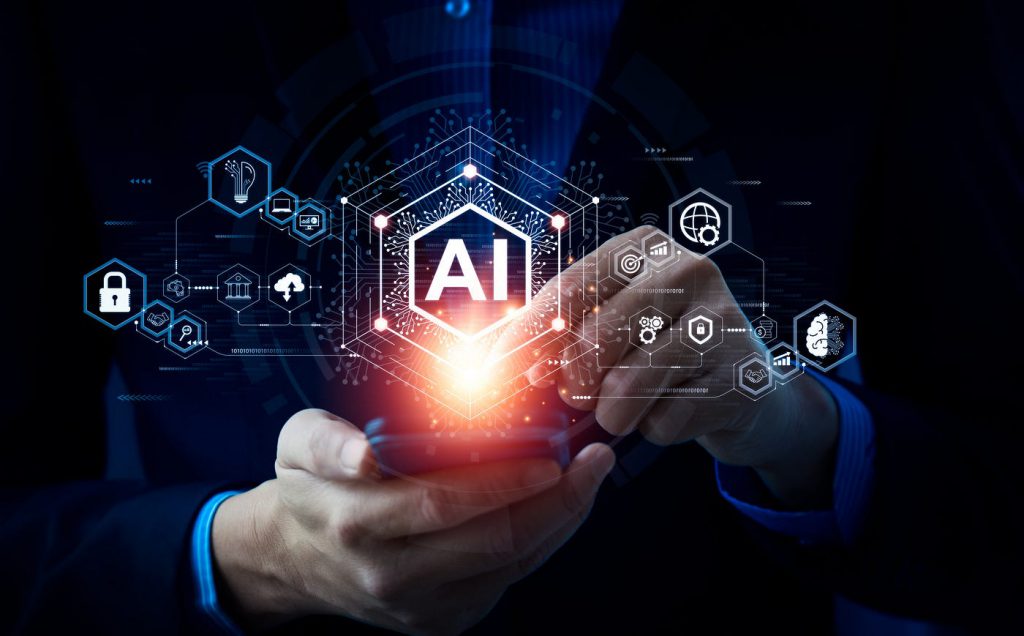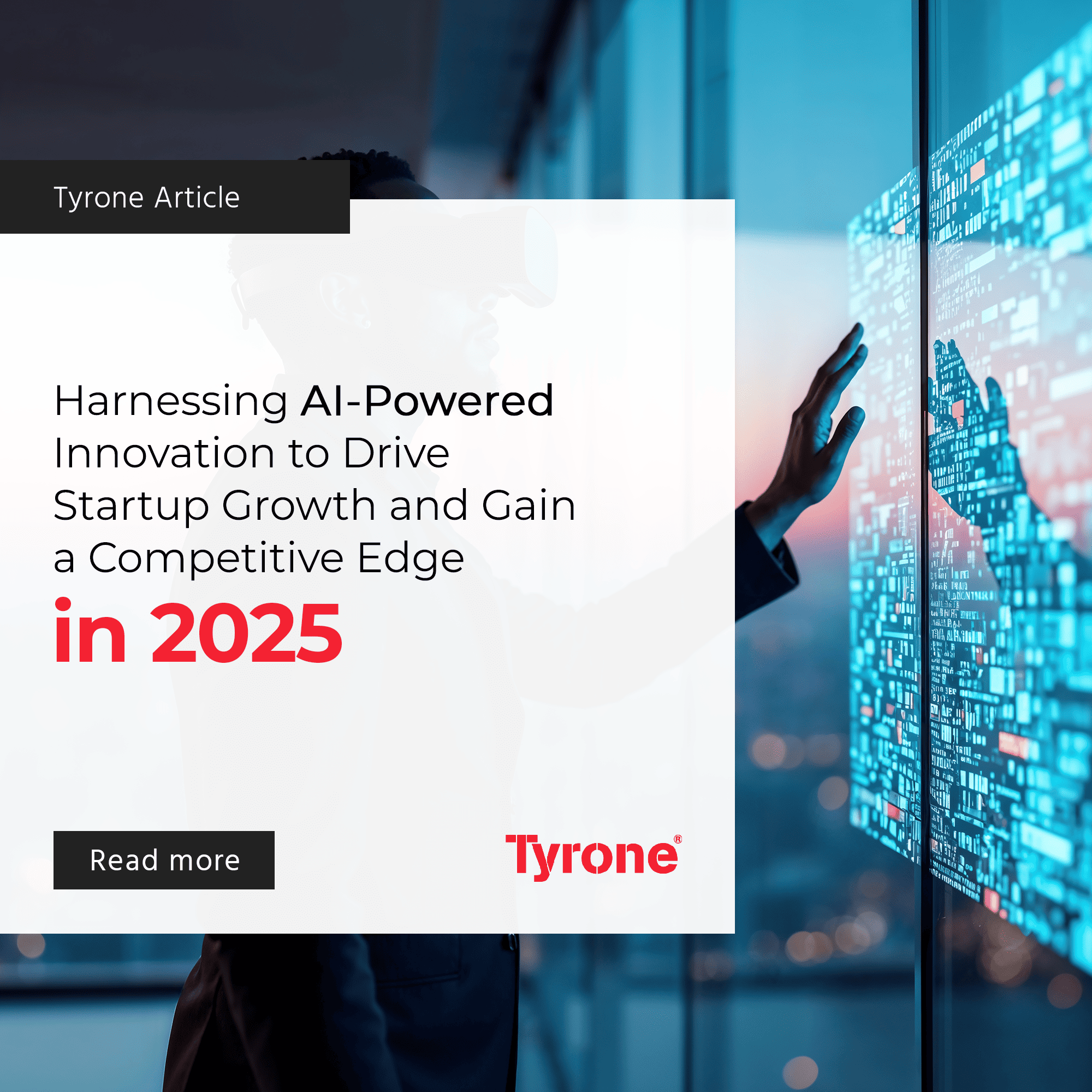The Role of AI in Startup Innovation
Artificial intelligence (AI) is revolutionizing startups by enabling them to operate smarter and more efficiently. From product development to customer engagement, AI is reshaping every facet of the startup ecosystem, allowing businesses to gain a competitive edge and scale rapidly. As we look towards 2025, AI-powered innovation is more than an advantage; it’s an essential component for startups aiming to thrive in a competitive market.
AI Trends Shaping Startups in 2025
Multimodal AI
In 2025, multimodal AI, which integrates data from various sources like text, images, and audio, is expected to dominate. This technology makes AI tools more intuitive and versatile, providing a richer, more seamless interaction with users and making AI-based solutions indispensable for startups. For instance, integrating voice, visual, and contextual data enriches user experiences, enhancing product appeal and functionality (Source: Coursera).
AI-Enhanced Security
AI is not just a tool for growth but also for protection. By 2025, AI will significantly enhance security by automating threat detection and response. However, startups must also navigate the risks posed by AI-enhanced cyber threats, making proactive security strategies a critical component of their operations (Source: Google Cloud).
Generative AI
Generative AI, which includes technologies that create human-like content, is set to become a cornerstone in product development and marketing strategies for startups. Whether generating marketing materials, streamlining content creation, or automating customer service, generative AI reduces costs and speeds up processes, enabling startups to do more with less (Source: Simplilearn).

AI Strategies for Startup Growth
Optimizing Operations
AI can streamline various operational tasks, such as automating routine processes, managing data, and predicting trends. Startups that leverage AI for these purposes can operate more efficiently, reducing overheads and focusing resources on strategic growth initiatives. For instance, AI-driven data analytics helps startups foresee market trends and adapt quickly (Source: v500.com).
Personalizing Customer Experiences
AI tools, such as chatbots and personalized recommendation systems, enhance customer engagement by delivering tailored experiences. This personalization improves customer satisfaction and loyalty, driving higher customer lifetime value and, ultimately, better financial performance (Source: Zendesk AI).
Strategic Decision-Making
AI aids strategic decision-making by providing deep data insights. Predictive analytics, a critical AI application, allows startups to foresee market shifts and make informed decisions swiftly. In practice, these insights help with everything from product development to timing market entry, giving startups a strategic edge (Source: LinkedIn).
Leveraging AI for Marketing and Sales
AI-Powered Market Research
Traditionally, market research is time-consuming and costly. AI tools automate this process by creating and analyzing surveys, gathering real-time data from target audiences, and offering actionable insights. This approach not only saves time but also ensures that decisions are grounded in accurate, up-to-date information (Source: HubSpot).
Automated Customer Support
Customer support can be significantly enhanced with AI. Tools such as advanced chatbots powered by natural language processing provide immediate responses to common queries, freeing human agents to handle more complex issues. This dual approach not only boosts efficiency but also improves customer satisfaction by ensuring quick and accurate support (Source: aicontentfy.com).
AI’s Impact on Product Development
Rapid Prototyping and Testing
AI accelerates product development cycles by automating the creation of prototypes and gathering user feedback. Tools like Miro Assist help startups generate and refine ideas quickly, while AI-enhanced integrated development environments (IDEs) streamline coding and testing, reducing both time and costs associated with bringing new products to market (Source: HubSpot).
Enhanced Product-Market Fit
One of the main reasons startups fail is the lack of product-market fit. AI tools can analyze market data to provide insights that align product features with market needs, increasing the likelihood of success. For instance, AI-driven mockups and beta tests offer valuable feedback that startups can act on immediately (Source: Startup Genome).
Scaling with AI
AI in Financial Planning
AI tools can assist with financial planning by generating business plans, predicting financial performance, and ensuring startups are investment-ready. This capability not only helps secure funding but also keeps startups on track for sustainable growth (Source: HubSpot).
AI for Human Resources
Managing human resources efficiently is crucial for scaling startups. AI can help in various HR functions, from recruiting the right talent to aligning employee efforts with company priorities. Machine learning models can analyze applicants to identify those who best fit the startup’s needs, while AI-driven tools can enhance team collaboration and productivity (Source: Lumenova).
The Economic Impact of AI
AI’s contribution to economic growth is significant. For instance, AI is projected to create 12 million more jobs than it will replace by 2025, a testament to its role in enhancing productivity and opening new avenues for employment (Source: CompTIA). Furthermore, the AI market is expanding at a rapid pace, with an expected compound annual growth rate (CAGR) of 38.1% from 2022 to 2030 (Source: Exploding Topics).

Conclusion
In 2025, the successful integration of AI into startup operations will be a defining factor for competitive advantage. From optimizing operations, personalizing customer experiences, and enhancing product development to strategic decision-making, AI provides the tools that startups need to thrive in an ever-evolving market. By harnessing the power of AI, startups can not only accelerate growth and efficiency but also transform challenges into opportunities, ensuring long-term success and resilience in the digital age.











